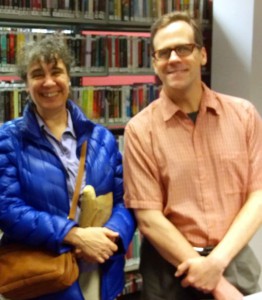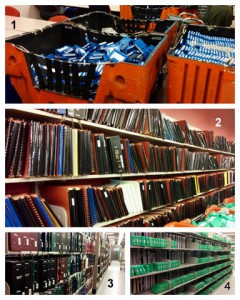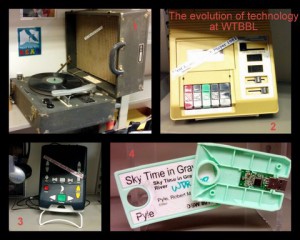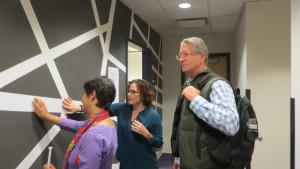Visiting the Washington Talking Book & Braille Library
 Since I started working at the Washington State Library (WSL) last February I have heard so much about the Washington Talking Book & Braille Library (WTBBL) and all the good work that they do. So last month while I was in the Seattle area for another meeting, I took advantage of the opportunity to visit and learn more about this unique branch of the WSL. The only word that comes to my mind is WOW! David Junius, Volunteer Services and Outreach Manager at WTBBL, gave me an extensive tour of the library and I thought I would share a little of what I learned.
Since I started working at the Washington State Library (WSL) last February I have heard so much about the Washington Talking Book & Braille Library (WTBBL) and all the good work that they do. So last month while I was in the Seattle area for another meeting, I took advantage of the opportunity to visit and learn more about this unique branch of the WSL. The only word that comes to my mind is WOW! David Junius, Volunteer Services and Outreach Manager at WTBBL, gave me an extensive tour of the library and I thought I would share a little of what I learned.
Things I knew about WTBBL
I knew that WTBBL serves the blind population all over Washington State providing books in braille, large print and audio format, but I didn’t realize they also served people with visual impairments, a physical disability (such that holding a book or turning a page is difficult), or a reading disability. The most recent addition to their services is the BARD (Braille and Audio Recording Download) mobile app which allows access to downloadable audio books right to an iPhone, iPod, or iPad and an app for Android platform devices is on the way. The app is an additional mode of access to the already popular and large collection of audio and web-braille books on the BARD website.
I knew they have an incredible and dedicated staff, who intimately know and serve their patrons.
I knew they had an extremely loyal and vocal patron base.
Things I didn’t know about WTBBL

Behind the scenes 1. bins of returned digital books waiting for inspection 2. locally produced braille 3. National Library Service provided braille 4. Cassette books on their way to retirement
I had no idea that they had a huge cadre of volunteers, in fact much of what they are able to accomplish is because of this dedicated volunteer base. These volunteers provide a wide range of services from transcribing in braille, using a special software provided by WTBBL, proofreading braille in teams of sighted and blind volunteers, to narrating and reviewing audio books, assisting in youth services, inspecting returned audio books, and general library support.
I didn’t know that they have a very specialized Reader’s Advisory service, which assists patrons, caregivers, and teachers in accessing the best, most tailored service possible. Each patron has the option of filling out a profile of their likes and dislikes, preferences etc. The preferences they have identified are matched up with interest codes on books and picked automatically when a book is returned, sort of like Netflix. Approximately 85% of WTBBL patrons take advantage of “autoselect”. Talk about personalized service!
Amazingly cool things about WTBBL
Marissa Sohn a student at Cornish College of the Arts created a permanent art installation “Fragmented”.
The artwork traces a grid of downtown Seattle using old strips of braille. It is not only beautiful to the eyes but is tactile to the fingers, certainly fitting in a library for people unable to read standard print. In addition there is a more transient exhibition right now called “Innocent Eyes”. The exhibit is done by photographer Stephanie Harstad. It features eight large close-up portraits of people who are blind. Next to each portrait are three smaller photographs taken by the blind individual. Originally planned to be exhibited for only a short time the exhibit has remained for several extra months.
WTBBL is a Museum.

1. record player and talking book record loaned beginning mid-1930s 2. cassette player, loaned mid-1970s to 2014 3. digital talking book machine, loaned 2009 – present 4. Inside of a digital talking book
WTBBL hosts a display of the historic equipment that has been provided to the blind to enable them to listen to recorded books. At the birth of the national service in 1931, audio materials were records and over time have transitioned all the way up to a modern day digital talking book machine using digital cartridges and including a USB port on the side for individual flash drives.
If you’re in the Seattle area and want to be amazed I can’t say enough, make time for a visit to WTBBL.
You can follow any responses to this entry through the RSS 2.0 feed. Both comments and pings are currently closed.






